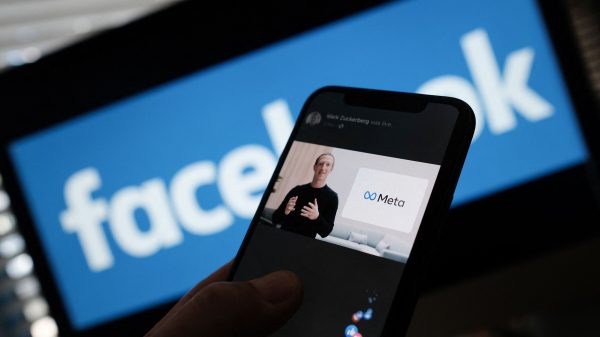Any government-related content that is fact-checked as false or fake or misleading by the government’s fact-check unit must be taken down by all intermediaries, including social media platforms, as per the amended IT Rules, 2021.
India’s IT Ministry will notify the name of the fact check unit of the Central Government that will carry out this function, but it is likely to be the Press Information Bureau’s fact check unit, which falls under the Ministry of Information and Broadcasting, as indicated by the IT Minister previously.
If a social media platform (Facebook, Twitter, YouTube, Reddit, etc), an Internet Service Provider (Airtel, Jio, etc), or any other intermediary fails to remove the content flagged by the fact check unit, the intermediary could lose safe harbor protections guaranteed by Section 79 of the IT Act, 2000, which absolves intermediaries of liability for content posted by users.
These new powers of the government come from the IT Amendment Rules, 2023, notified on April 6.
STAY ON TOP OF TECH POLICY: Our daily newsletter with top stories from MediaNama and around the world, delivered to your inbox before 9 AM. Click here to sign up today!
Why does this matter: While the amendments largely focus on regulating online gaming, the fact check provision has more serious implications as it threatens the freedom of speech and expression by giving the government overbroad powers to censor any news about it that it dislikes. For instance, there are no safeguards to ensure that the government will not fact-check a claim made by the opposition party as misleading and have it removed from all social media platforms, especially given that the terms “fake”, “false”, and “misleading” are undefined.
“Assigning any unit of the government such arbitrary, overbroad powers to determine the authenticity of online content bypasses the principles of natural justice, thus making it an unconstitutional exercise. The notification of these amended rules cement the chilling effect on the fundamental right to speech and expression, particularly on news publishers, journalists, activists, etc.” — Internet Freedom Foundation (IFF)
Allows the government to bypass Section 69A process for blocking content: “The fact check unit, notified by the Executive, could effectively issue a takedown order to social media platforms and even other intermediaries across the internet stack, potentially bypassing the process statutorily prescribed under Section 69A of the IT Act, 2000,” IFF claimed.
In violation of the Supreme Court’s Shreya Singhal judgment: “In addition to circumventing the parliamentary procedures required to expand the scope of the parent legislation, i.e. the IT Act, these notified amendments are also in gross violation of the Hon’ble Supreme Court ruling in Shreya Singhal vs. Union of India (2013) which laid down strict procedures for blocking content,” IFF pointed out.
Editors Guild of India hits out fact-check amendment:
EGI is disturbed by the amendments notified to the IT Rules 2021, by @GoI_MeitY giving itself authority to constitute a “fact checking unit”, with sweeping powers to determine what is “fake or false” wrt “business of Central Government”, and order take down to intermediaries. pic.twitter.com/8osEyM1RTS
— Editors Guild of India (@IndEditorsGuild) April 7, 2023
Nikhil’s Take: Why the new rules are undemocratic: MediaNama’s Editor Nikhil Pahwa had this to say about the fact check amendment when it was proposed first in January:
“The traditional function of news is calling truth to power: it’s almost always the official version versus the news-reported version. It’s how someone wants to portray what is happening versus how it actually is. The media is supposed to report the inconvenient truth. This is most important in a state of conflict, whether internal or external: when soldiers cross a border and kill yours, both sides have their versions of events. When the police opens fire on a protest, there are multiple versions of what happened.
With the latest changes to the IT Rules, the Indian government has given India’s Press Information Bureau the power to determine what the truth is, and order social media platforms to censor news organisations. The reach of a news story online is dependent on social media platforms. If you don’t see a link, what will you click on?”
What does the amended IT Rules, 2021, say exactly: After incorporating the amendments (highlighted in italics) relating to the government’s fact-check powers, Rule 3(1)(b)(v) reads as follows:
“3(1) Due diligence by an intermediary: An intermediary, including a social media intermediary, a significant social media intermediary and an online gaming intermediary, shall observe the following due diligence while discharging its duties, namely:
- (b) the intermediary shall inform its rules and regulations, privacy policy and user agreement to the user in English or any language specified in the Eighth Schedule to the Constitution in the language of his choice and shall make reasonable efforts to cause the user of its computer resource not to host, display, upload, modify, publish, transmit, store, update or share any information that,—
- deceives or misleads the addressee about the origin of the message or knowingly and intentionally communicates any misinformation or information which is patently false and untrue or misleading in nature or, in respect of any business of the Central Government, is identified as fake or false or misleading by such fact check unit of the Central Government as the Ministry may, by notification published in the Official Gazette, specify.”
How is this different from what was proposed in January 2023: The proposed fact-check amendment released on January 17 empowered PIB’s fact-check unit, as well as any other agency authorized by the government, to fact-check any online content, including anything related to the government, and this content needed to be taken down by intermediaries. Furthermore, any government department could also fact-check information related to the said department. These provisions have been trimmed down in the final version to only allow fact checks of government-related content by the government fact check unit.
Concerns raised earlier still apply: While the proposed amendment might have been trimmed down, many of the concerns that were raised earlier continue to exist. We’ve covered these concerns in the stories below:
- 5 Things That Are Wrong With India’s Proposal To ‘Curb Misinformation’ Online [read]
- “This Is About Our Ability To Freely Express Ourselves”: Concerns On India’s Proposed ‘Fact-Checking’ Policy [read]
- Fact-Check Amendment “Will Result In Muzzling The Fourth Pillar Of Democracy”: News Industry Body [read]
- Government’s Misinformation Plans May “Suppress Not Just Fake News But The Truth”: Digital News Outlets [read]
- Does The Ministry Of Information And Broadcasting Have Power To Censor Social Media Content? [read]
“It is observed that conferring such powers to the Government without any checks and balances will result in muzzling the fourth pillar of democracy and also have a chilling effect on the media. This amendment gives the Government the unbridled and unfettered right to interfere with the free speech rights of the media without any oversight.” — News Broadcasters and Digital Association (NBDA) on the earlier proposed amendments
Were separate consultations for this amendment held: The proposed fact check amendment was introduced out of the blue on January 17. Within a week, the IT Minister said that separate consultation will be held on the fact check provision in February before the final rules are notified. It is not clear if these consultations were held.
“What is further suprising is that the Ministry has notified this amendment, without any meaningful consultation that it had promised after it withdrew the earlier draft amendments it had put out in January 2023. These had given sweeping powers to the Press Information Bureau (PIB), which was universally criticized by media organizations across the country, including the Guild.” — Editors Guild of India
What about fact-checks involving non-government news: Now that the Rules only allow the government unit to fact-check news related to the government, what about other online content? In late February, IT Minister Rajeev Chandrasekhar indicated that non-government-related news might be fact-checked by self-regulatory organizations (SROs) as preferred by social media platforms. However, the amended IT Rules do not carry any provisions to this effect. So it’s not clear if new regulations around this are expected in the future.
IT Rules already required platforms to not host fake content, government claims: “It is to be noted that the existing IT rules already required the intermediaries to make reasonable efforts to not host, publish or share any information which is patently false and untrue or misleading in nature,” the IT Ministry stated in a press release in an attempt to downplay the implications of the amendment, but the amendment gives the government a direct say on what is false and misleading, which is where the problem lies.
This post is released under a CC-BY-SA 4.0 license. Please feel free to republish on your site, with attribution and a link. Adaptation and rewriting, though allowed, should be true to the original.
- Quick Take: India’s New News Censorship Rule Is Undemocratic
- IT Ministry Notifies Online Gaming Rules: What’s Changed?
- India’s I&B Ministry Has No Answer For Query On Expertise Of Fact-Checkers Working For Govt’s Fact Check Unit
- Self-Regulatory Body May “Fact-Check” Non-Government-Related Information Online: IT Ministry






























